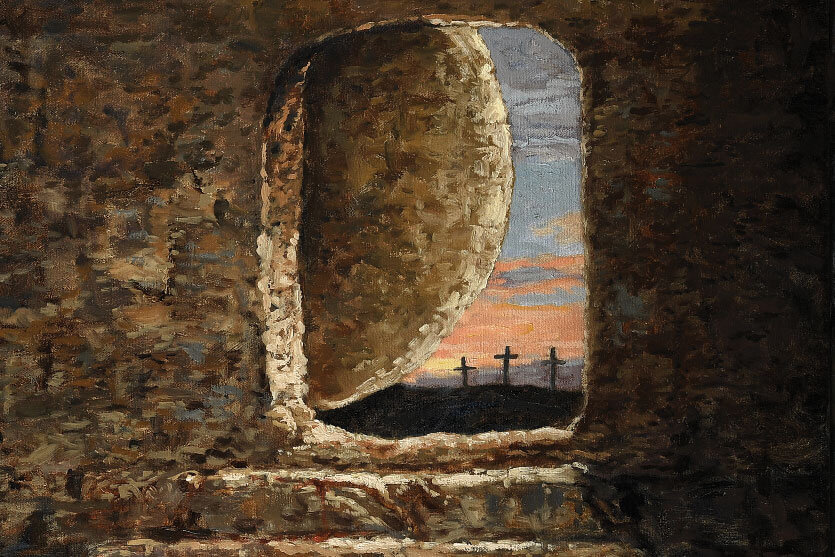PRAY
Loving Father, may I have the power to know the love of Christ that surpasses knowledge (Ephesians 3:18-19).
READ
“I have said this to you, so that in me you may have peace. In the world
you face persecution. But take courage; I have conquered the world!”
John 16:33
It might strike a reader as strange that a man who is about to be executed as an enemy of imperial Rome would be telling followers to take courage as He has conquered the world. A maimed Jesus, hanging on a cross and breathing out His last, looks like anything but a world conqueror. By all appearances Jesus is the one conquered. His cross looks to be the victory of the world and annihilation of everything Jesus stands for.
Rome carefully devised crucifixion to be more than just capital punishment; it was state-sponsored terrorism. It was meant to terrify, and terrify it did. The point of crucifixion was not just to kill but to send the message: you defy Rome and this is what we will do to you. We will leave you dying an agonizingly slow death in “excruciating” (ex cruce, “from the cross”) pain. And Jesus’ followers got the message! They deserted Jesus on Good Friday lest they be nailed to Roman crosses.
But J. R. R. Tolkien, author of The Lord of the Rings, The Hobbit, and other high fantasy works, created a word describing what happens to Jesus and His followers. Tolkien called it a eucatastrophe; the Greek prefix eu, meaning “good” affixed to catastrophe. Tolkien explained the meaning of eucastrophe in a letter to his son:
“I coined the word ‘eucatastrophe’: the sudden turn in a story which pierces you with a joy that brings tears…And I concluded by saying that the Resurrection was the greatest ‘eucatastrophe’ possible in the greatest Fairy Story — and produces that essential emotion: Christian joy which produces tears because it is qualitatively so like sorrow, because it comes from those places where Joy and Sorrow are at one, reconciled…” (The Letters of J. R. R. Tolkien, #89)
Tolkien thought that Christ’s resurrection was the sudden, unexpected “Happy Ending” assuring the world that life conquers death, good triumphs over evil, and love overcomes. Tolkien said that the Resurrection is “indeed how things really do work in the Great World for which our nature is made.” (The Letters of J. R. R. Tolkien, #89)
Roman executioners and rulers fancied they were the conquerors that day. But the apostle Paul explains that world rulers did not grasp the significance of Christ’s death:
“None of the rulers of this age understood this; for if they had, they would not have crucified the Lord of glory. But, as it is written, ‘What no eye has seen, nor ear heard, nor the human heart conceived, what God has prepared for those who love him’” (1 Corinthians 2:8-9).
Neither Governor Pilate nor the religious leaders could have imagined the overwhelming victory of God through the cross of Jesus Christ. It was the “good catastrophe” by which God reconciled the world to Himself (2 Corinthians 5:19). Through it God works the ultimate “Happy Ending”! It is as Tolkien rightly said, “a story which pierces you with a joy that brings tears.”
So let not your heart be troubled! Do not misunderstand! The bleeding, dying Jesus has conquered the world. Take courage! For, “In all these things we are more than conquerors through him who loved us” (Romans 8:37).
REFLECT
- How does the ‘eucatastrophe’ of the Cross give courage to me today?
O most merciful Redeemer, Friend and Brother, may I know Thee more clearly, love Thee more dearly, and follow Thee more nearly, day by day.
Richard of Chichester (1197-1253)


